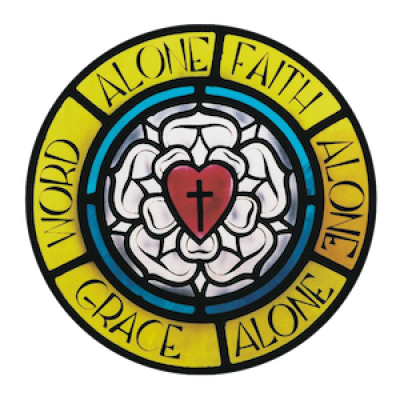Dear Friends in Christ,
A while back a member asked me about an elevator pitch regarding what is it to be Lutheran. I was thinking about this question again the other day: How do we briefly, yet thoroughly and faithfully, describe to someone what it is to be distinctly Lutheran? Here’s what I think I’d say, in bullet point form:
-
- Nothing is more important than the Word of God: the Holy Scriptures. That is, the entire Word of God – teaching, preaching, hearing, and trusting in all of it. [Hebrews 1:1-2; 2 Timothy 3:16-17; 2 Peter 1:21]
- This is because God in His Word teaches us what we can’t know on our own:
- Man is corrupted by Sin and we are all sinners, every one, and we can’t do anything about it. We justly deserve the eternal wrath and punishment of God, who is righteous and holy. [Ephesians 2:1-3; John 8:34; Romans 5:12]
- And yet, our Sin is completely forgiven entirely by God’s gracious doing and giving. Jesus Christ, the Son of God, lived perfectly, took our sins and died under God’s wrath and punishment with them, all for us. God raised Him from the dead, showing us that sin is forgiven and death is defeated. God promises that He will raise all believers in Christ into eternal life with Him on the Last day. [1 John 4:10; 2 Corinthians 5:21; Ephesians 2:8-9; Romans 3:25; 1 Peter 2:24; Romans 5:10]
- We hold to this without compromise. Sin is sin. Forgiveness is forgiveness. If God says something is a sin, then it is. If God announces that Sin is forgiven, then it is forgiven. [1 Corinthians 15:22-23; John 14:19]
- God gives us His Holy Spirit, who, richly dwelling in us, enables us to confess with our mouths and believe in our hearts that Jesus is Lord. [Romans 10:8-13; 1 Corinthians 12:3]
- In Holy Baptism (which is for every human being, no matter their age) the righteousness of Christ is given to us because the very Name of God is put on us in the water and we are made children and heirs of God in Christ Jesus. [Acts 2:38-39; Exodus 20:24; Matthew 28:19-20]
- In this new life given to us in our baptism into Christ, God calls us to live according to His will, which is revealed to us by the Word of God. The Scriptures teach us how we are now to live. [Romans 6:3-13]
- In the Lord’s Supper, the Body and Blood of Christ (“is” means is) is truly given to us to eat and to drink. By faith in Christ’s words, “given and shed for you for the forgiveness of sins,” one receives the true Body and Blood worthily, to one’s help and salvation. Receiving them in unbelief (example reasons: not the Body and Blood; not for me; I’m not a sinner, etc.) one receives the true Body and Blood to one’s judgment and harm. Receiving the true Body and Blood together, we are united with Christ and with each other in the forgiveness of sins. [Matthew 26:26-29; 1 Corinthians 11:23-32; 1 Corinthians 10:16-22]
- Christ calls men to be pastors in His Church, with the task of proclaiming the full counsel of His Word (all the Scriptures) publicly, that is, in the Divine Service and in individual pastoral care; especially the proclamation of the forgiveness of sins in the Absolution (chiefly individually, but also corporately). Pastors are also called to distribute the Sacraments (Baptism and Communion) according to Christ’s establishment and ordering of them in the Scriptures. [John 20:21-23; 1 Corinthians 4:1; Luke 10:16]
- The Divine Service is ordered to reflect this reality and to convey it to us clearly. The two high points of the Service are the preaching of the Word in the readings and sermon and the forgiveness of sins given out to believers in the Sacrament of the Altar. The point of the Service isn’t chiefly to move people emotionally, or to convince them to believe, or to manipulate them in any way, but instead to make sure that they hear that even though we are dead in our trespasses and sins, we are made alive in the salvation won for us and given to us in Jesus Christ. [2 Timothy 4:1-5]
Above I said this is distinctly Lutheran. In fact, all this is simply, distinctly, Christian. All of this is from God’s Word. If we set part of it aside or change it, then we are unfaithful and the Lord is right to discipline us. He calls us to remain faithful to His Word, and we should make sure we attend a congregation that teaches and practices this rightly, and likewise avoid those which do not.
The greatest, most wonderful thing is that we have all this published in a tidy little book for any person to be able to read and see for themselves. In the Small Catechism we have this marvelous teaching of God simply spelled out. You and I should be daily reading in the Catechism, chewing on those words, pondering them, and teaching them to our neighbors.
Take some time and look up those passages above. Pull out your Small Catechism and start reading through a section each day along with your Bible.
In Christ,
Pastor Schuermann
